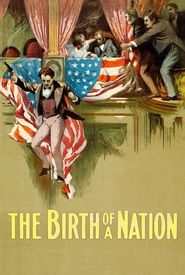Thomas Dixon was born in Shelby, North Carolina, to a Baptist minister and a slave-owner. He grew up on the family's farms and later became aware of the Ku Klux Klan when a local Confederate widow accused a freed slave of rape and the Klan took justice into their own hands. Dixon's uncle and father were both Klan members, but they eventually left due to the organization's corruption.
Dixon attended the Shelby Academy, Wake Forest University, and Johns Hopkins University, where he befriended future US President Woodrow Wilson. He then moved to New York City to pursue a career in journalism and acting, but returned to North Carolina after his acting career failed.
Dixon enrolled in Greensboro Law School and obtained his law degree in 1885. He then became involved in local politics, but was shocked and disgusted by the corruption he saw and declined to run for re-election. He became an advocate for Confederate veterans and eventually left law to become a minister.
Dixon was ordained as a Baptist minister in 1886 and went on to serve churches in Greensboro, Goldsboro, and Raleigh, North Carolina, as well as Boston, Massachusetts, and New York City. He associated with prominent figures such as John D. Rockefeller and Theodore Roosevelt and eventually resigned from the Baptist ministry in 1895 to preach at nondenominational churches.
Dixon wrote his first novel, "The Leopard's Spots", in response to Harriet Beecher Stowe's "Uncle Tom's Cabin", and went on to write "The Clansman", a novel that portrayed the Ku Klux Klan as heroes of the post-Civil War South. The book was adapted into the film "The Birth of a Nation" by D.W. Griffith.
Dixon died of a cerebral hemorrhage in Raleigh, North Carolina, on April 3, 1946, at the age of 82.

















